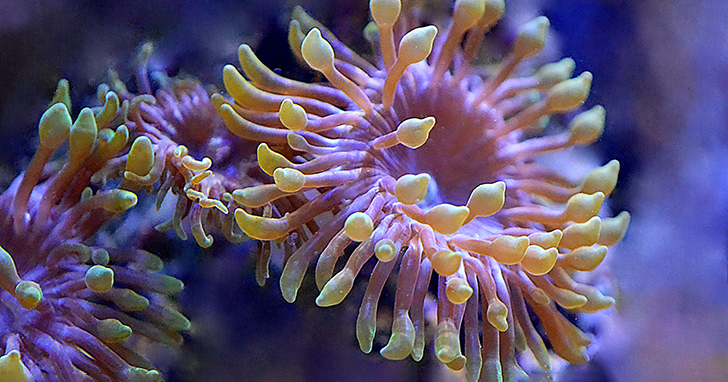
The Importance of FiltrationWhat is filtration and why is it so important to an aquarium?
Your filtration system is the guts of your aquarium and what will, experts say, make the difference between success and failure. Filters trap solid waste from your tank and convert liquid waste to a relatively harmless form, then return the byproduct to your tank. How you treat and monitor your aquarium water is vital for the health of your fish. What kind of filtration does an aquarium need?
For a basic aquarium, two types of filters are required: Mechanical filters, which remove particulate debris from the water, need to be checked and cleaned regularly. Even though these filters trap particulate waste and make your aquarium look cleaner, the mechanical media needs to be removed and cleaned, to physically remove the waste from your aquarium. Biological filters enable bacterial colonies to propagate and break down waste. Biological filtration is the action of bacteria in the tank breaking down dangerous ammonia, converting them to nitrites, and then the nitrites to the less toxic nitrates. Nitrates can be harmful to many invertebrates in high concentrations. The process of biological filtration, also known as the nitrogen cycle, involves the movement of harmful wastes through the filter. Biological filters should be checked regularly to ensure particles have not escaped the mechanical filters which could result in clogging the biological filter and decreasing efficiency. What are the other types of filtration for aquariums?
Chemical filtration involves using media such as activated carbon or filtering resin to remove pollutants and harmful waste, as well as to clean the water. Chemical filtration can also refer to nitrate and phosphate removers. There are many different brands and types of filters on the market making it easy to find one that meets your needs. Which one to buy depends on your choice of fish and water climate (i.e. freshwater or saltwater), what size tank you have, how many fish, and to some degree, personal preference. Ideal filters contain at least two of the three basic types of filtration. Chemical filtration is not always necessary. External or internal filtration?
Filters can be situated either inside or outside the tank. External filters require the use of a water pump and are referred to as power filters. These are easier to maintain than internal filters and may be more flexible in their ability to alter water chemistry by allowing room to use various media. A wet/dry filter (a.k.a. trickle filter) uses gravity to siphon water from the tank through a hang-on prefilter. It then directs tank water through a suspended biological filter media which is open to constant air contact (dry filter). IT may also contain a submersed mechanical or biological filter (wet filter) and usually have extra space to add various chemical medias if needed. A pump then delivers the filtered water back to the aquarium. Since the biological media is in constant contact with air, it does not consume oxygen needed for the biological process from the aquarium water, allowing a higher level to be available for inhabitants. Internal filters consist of under gravel filters, sponge filters, internal power filters, and box filters. The drawback is that more maintenance may be required. How good are protein skimmers for filtration?
Protein skimmers are filters generally reserved for saltwater environments. Protein skimmers remove the proteins and other organic waste from the aquarium before being digested by the bacteria. This slows down the buildup of nitrates, lengthens the time between water changes, and prevents algae build up, all of which contribute to better water conditions. By removing wastes prior to biological breakdown, more oxygen will be available to the inhabitants since it was not consumed in the biological process. Higher oxygen and lower waste levels add a great deal to the overall health of the aquarium making the purchase of a skimmer well worth it. Why is it important to make water changes?
Partial water changes should at least be done monthly by removing and replacing approximately 15%-25% of the total water volume of your aquarium. Water changes may be performed more frequently (weekly, for example) by doing smaller amounts, but always remember to not exceed 25% during any individual water change. It is very important to make sure the new water for the aquarium is the same temperature as the water already in the aquarium, in order to keep the fish from suffering more stress. Some organisms are good for your tank in low amounts. Algae serves as a food source for some fish; however, you do want to control its growth, so it doesn't overtake your tank. Algae will grow as long as there is nourishment, so the key to control is monitoring food and light and performing regular water changes. Do not overfeed your fish and never place your aquarium where it would be in direct sun. More on biological filtration...
Related Articles
|
||
|
|


